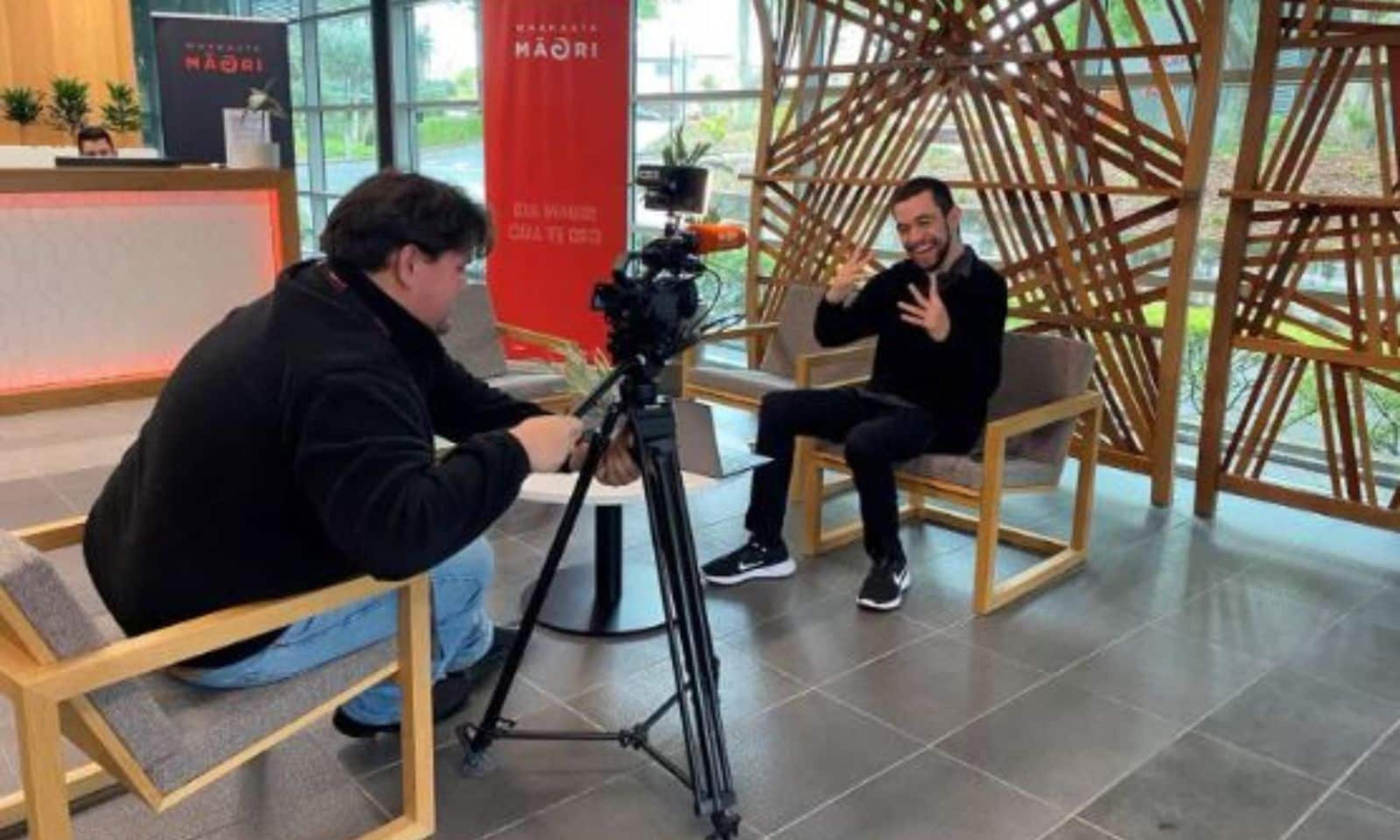

William Sangster is a Te Rito journalism cadet on placement at Whakaata Māori.
Photo/Whakaata Māori
Reporter with cerebral palsy breaks barriers with story for Whakaata Māori
William Sangster is a Te Rito journalism cadet and has just finished creating his first linear story after doing his first voiceover.



Heading off on a roadie? Here’s how to keep your car and whānau safe




Heading off on a roadie? Here’s how to keep your car and whānau safe

Whakaata Māori has made media history by having a journalist affected by cerebral palsy produce a story for television with his voice and subtitles.
William Sangster is a Te Rito journalism cadet on placement at Whakaata Māori and has just finished creating his first linear story after doing his first voiceover.
“It’s good because I get to pave the way for others with disabilities to see that they can do it,” Sangster says.
The young reporter has left hemiplegia - a type of unilateral cerebral palsy that causes paralysis on only one side of the body, which affects his ability to control his muscles and swallowing.
Sangster is also nonverbal and uses a phone and other systems to communicate.
“The stigma is lessened, meaning if I don’t get to do this, then my people will never get to unless we break down these barriers,” he says.
Sangster’s first voiceover report follows West Auckland’s Massey High School First XV, who recently travelled to France and got a close look at the Rugby World Cup; meeting players from Pacific teams and a former Massey High student - All Black Mark Tele’a.
As the story is being told, an inset image of Sangster appears at the bottom of the screen as he speaks, as subtitles run across the screen.
Following the story, Whakaata Māori presenter and veteran broadcaster Neil Waka says: “I started in television over 30 years ago and you don’t get surprised that often. I’m so proud of what William Sangster did in bringing us that report - I hope you are too.”
Sangster is a former student of Auckland’s Marcellin College and is a proud Tongan through his mother Lonili Sangster, who hails from the villages of Vaini and Lapaha. Sangster’s father, Karl Sangster, is European.
‘I went from people reporting on me to reporting my own stories’
Will Sangster admits to feeling overwhelmed after the story aired and he shed tears of joy; realising he has not only made history but is now able to share with the rest of Aotearoa what people like him are capable of.
“I went from people reporting on me when I was young to now reporting my own stories.”
Whakaata Māori news and current affairs director Wena Harawira believed in Sangster’s kaupapa and supported him.
“Despite William’s disability, this is just one aspect of how we are doing it. It demonstrates how the media must change to accommodate reporters like William.
“William is forging his own path in the media and he is helping us create history. That’s something we wanted the Te Rito cadets to do. We want them to do the kinds of things William is doing.”
NZME’s head of cultural partnerships and newsroom diversity and Te Rito cadetship manager Lois Turei says she was excited by Sangster’s application to the cadetship programme.
With a communications degree behind him, a strong social media following and a deep connection to his Tongan heritage, he exhibited remarkable potential.
“His application showed determination and resolve, traits that have come to define his approach to life,” she says.
“We’re incredibly proud of Will. He consistently tackles challenges with a remarkable combination of tenacity and resilience, positioning him to be a powerhouse in both mainstream and disability news journalism,” Turei says.
Sangster has advice for disabled community members in the mainstream.
“Never be discouraged from the barriers and adapt to the strengths that make you different from others.
“Smash through these doors and build a new one for everyone.”